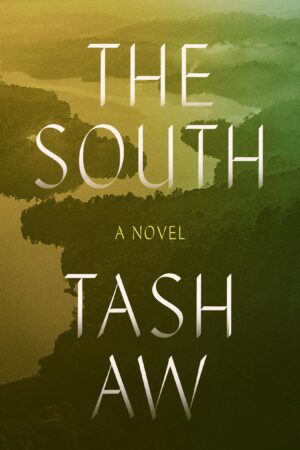The South
by Tash Aw
reviewed by Sarah Moorhouse
Midway through Tash Aw’s novel The South, a boy called Jay tries kretek, a type of cigarette made with cloves. “It tasted sour and pungent but also sweet, and most of all it tasted of newness, and by the second or third drag it had become familiar, as if I’d been smoking these cigarettes all my life.” Everything tastes of newness for Jay. He is at that tipping point at the end of adolescence when all is discovery: his environment, his interests, his sexuality. His parents, meanwhile, stew in the quiet desperation of lives that have lost their promise. What follows over the course of one languid summer in late-nineties Malaysia is an exquisite story of the gulf between generations, the thrill of self-discovery, and the heady danger of first love.
Aw, an established talent whose previous works include the Booker-longlisted Five Star Billionaire (2013) and the memoir Strangers on a Pier (2021), has honed a clear, spare prose style. It suits the narrative of The South, which is told in vignettes—we switch between the teenage Jay’s perspective and the third person, with occasional interjections from Jay’s older self. After Jay’s mother unexpectedly inherits the dilapidated family farm from Jay’s paternal grandfather, the family decides to try out rural living for a season. There Jay meets and falls for Chuan, the free-spirited son of the farm’s manager. Smitten, the boys declare their desire to be with each other “forever.” “But at that age,” the older Jay interrupts, “what does either of them really know about time?”
The desire between Jay and Chuan intensifies amid hostile conditions. The family dynamic simmers with barely contained hostility: according to Jay, his parents are like “actors rehearsing their lines” who would rather be “shouting profanities at each other.” The farm, meanwhile, is falling to pieces, wracked by dual plagues of drought and the 1997 Asian financial crisis. Climate change and economic turbulence form an ominous backdrop to an essentially sociological narrative which shows us how each character’s life is determined by their environment.
It would be hard to find a more topical novel, as The South takes up gay identity, climate change, class, and the legacy of colonialism. There’s nothing perfunctory about Aw’s treatment of these topics, though: they emerge through his precise depictions of people and place. Being gay means something different for Jay than it does for Chuan, for instance. Jay, a product of his parents’ urban upward mobility, muses to Chuan that maybe they “would be able to hold hands in the street one day, somewhere … where people were too busy to wonder why we were holding hands.” For Chuan, who has grown up without education or money, other things are higher on the priority list. His reply: “don’t you have better things to think about in life?”
Class is a potent force for Aw, who grew up the son of working-class Chinese immigrants in Malaysia before winning a scholarship to study law at the University of Cambridge. In Strangers on a Pier, Aw reveals how education and experience have created a gulf between him and previous generations of his own family. The South carries this awareness into fiction. When Chuan takes Jay to see the run-down local city, from which the skyscrapers of Singapore can be glimpsed in the distance, Jay is repelled, and he imagines that “your whole life would be filled with a longing to be somewhere else.” Jay’s own future is open; its “lack of clarity … terrifies” him, but the ability to choose, to go “somewhere else,” is a privilege that other characters don’t have. Chuan’s father feels that he “has been in a box all his life, unable to break free.” While Chuan is driven by a desire not to “be like his father,” his lack of opportunities means that he seems doomed to replicate his father’s frustrations.
Against the forces of class, status, and gender that compete to determine the characters’ lives, the bond between Jay and Chuan appears both hopeful and fragile. Aw creates this atmosphere of fragility by investing his descriptions of the rural landscape with figurative significance. This technique results in moments that are overly earnest, such as when Jay muses, “how wonderful that something could be simultaneously dying and striving to stay alive.” Twice, he remarks: “light a match and the whole country could go up in flames”; flammability stands in for the tenuous condition of the present. But if these metaphors are a tad ponderous, they have a place in Aw’s portrait of adolescent seriousness. Everything does seem portentous when you’re sixteen.
The South is the first installment in a planned quartet, and it leaves many issues unresolved. Will Chuan and Jay be able reconcile the social gap between them? Will Jay’s parents accept his identity? The older Jay’s reflections contain hints that fissures will emerge; remembering how he cried into Chuan’s shirt, he insists that “older incarnations of that person would exercise greater mastery … in interactions with other people.” The novel focuses on its innocent, impressionable central character, but it is shot through with the cynicism of that same character in maturity. A portrait of the time when everything “tastes of newness,” The South is also a reminder of how brief that phase of possibility is, if we are granted it at all. Jay’s sister, Lina, warns him: “take your time. But not too much. Because you have less of it than you think.”
Published on May 27, 2025

